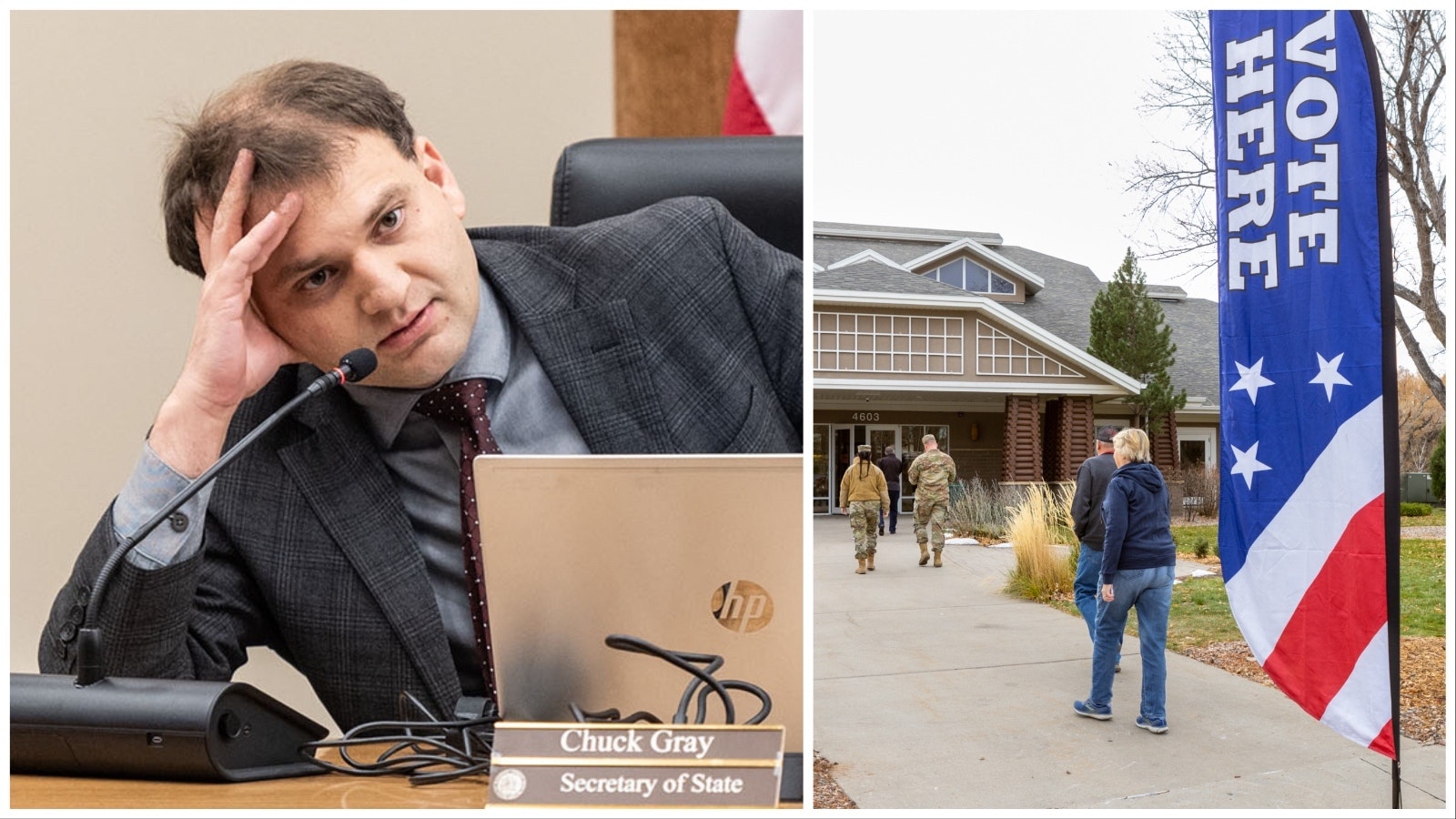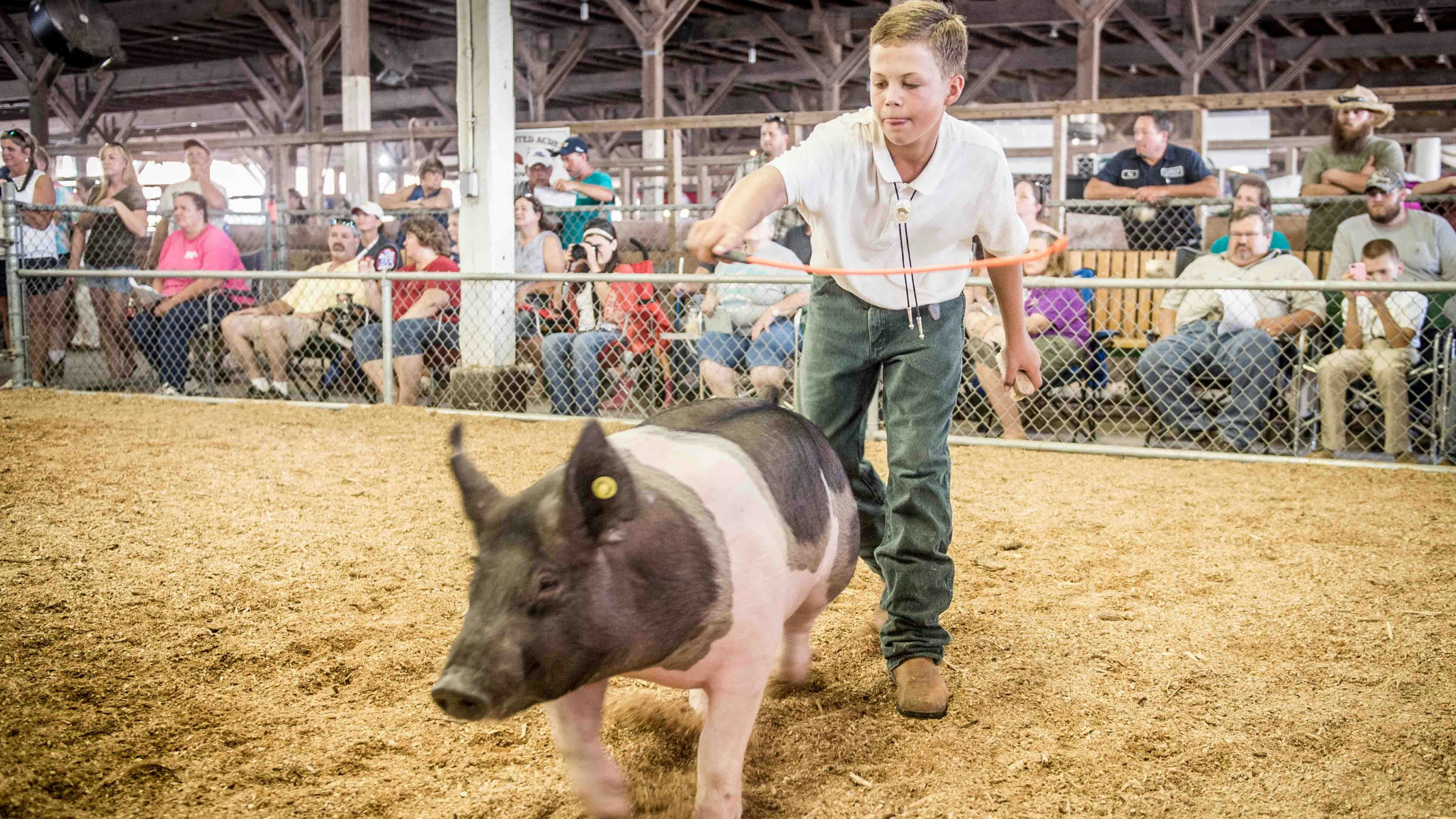Secretary of State Chuck Gray wants a 30-day residency requirement to vote in all Wyoming elections.
He made his case for the rule to the State Legislature’s Corporations, Elections and Political Subdivisions Committee on Tuesday, telling the committee that “action is needed now.”.
Wyoming has no law that requires any length of time living in the Cowboy State to be able to vote in elections here.
When asked by a committee member, Gray was not able to provide any examples of this law being exploited, but like many Republicans in Wyoming said the state needs to get ahead of election security.
What The Supreme Court Says
Prior to 1972, a voter had to maintain residency in Wyoming for one year and county of residence for a month to be eligible to vote, according to the state Constitution.
Joe Rubino, chief legal counsel for the Secretary of State’s office, said this aligned with more than 30 states at the time that had stipulations written in their constitutions that residents had to live there for more than one year to vote. Another handful required more than 18 months of residency, and another handful required six months of residency.
These requirements were struck down in 1972, when the U.S. Supreme Court ruled that lengthy requirements for voting in state and local elections are unconstitutional and determined a 30-day residency requirement to be ample to “complete whatever administrative tasks are necessary to prevent fraud.”
Sixteen states now enforce that maximum 30-day requirement, while 26 states have no requirement.
Gray’s proposal is built on a different interpretation of how long it takes before someone should be considered a legitimate Wyoming resident.
The Wyoming Supreme Court followed the U.S. Supreme Court’s decision in Delgiorno v. Huisman in 1972. It ruled that the state could still require voters to be residents of their counties for up to 30 days and their individual precincts for 10 days preceding an election, but did not find its one year requirement to be constitutional.
Since then, the Wyoming Legislature has done nothing to pass shorter requirements than a year that was struck down, thereby regulating no residency regulations.
“The bottom line here is that constitutional provision was struck down and in absence of action by the Legislature, we think we need to have action on the durational residency requirement,” Gray said.
Once a resident establishes some form of residency in Wyoming, the state’s laws are quite lenient. Park County Deputy Clerk Hans Odde mentioned earlier in the meeting that “snowbirds” who only reside in Wyoming for a few months of the year can still vote in the state.
But Why?
State Rep. Mike Yin, D-Jackson, pressed Gray on what is the compelling interest to instate a requirement when the state hasn’t had one for 51 years.
Gray used the scenario of someone showing up at a hotel and then using that temporary residence to register to vote. He said when he asked the Wyoming County Clerks Association if this would be allowed, he said he was told the organization was unsure.
“That’s scary to me,” Gray said. “The state has a clear compelling interest to make sure that those who are casting ballots are indeed Wyoming residents.”
Yin then asked Gray if a situation like his hypothetical scenario has ever been documented.
Although he couldn’t provide a documented example, Gray said he doesn’t find it to be a hypothetical problem because he claimed the state’s county clerks agree that residency duration needs to be resolved.
Rep. Sandy Newsome, R-Cody, presented Gray the hypothetical of a new resident who moves to Wyoming and hadn’t found a permanent place to live after being in Wyoming for 30 days. Gray said his proposed law wouldn’t keep that person from voting.
Other Requests
Gray also wants the Legislature to bring back legislation that would ban private funding of elections in Wyoming, a practice popularly known as “Zuck Bucks” in reference to Facebook owner Mark Zuckerberg’s political donations during the 2020 elections.
Gray said there is no evidence Wyoming received any of this money.
“It’s like anything, you get ahead of issues that could happen in the future,” he said.
During the 2023 session, a bill was brought that addressed the Zuck Bucks issue, but wasn’t introduced.
The passage of a bill that prohibits voters from changing party affiliation for primary elections after the candidate filing period opens was one of Gray’s election security victories from the 2023 legislative session.
Gray said concern that the crossover voting law would prevent new residents from registering with a political party isn’t supported, but said he would support a new bill that alleviates this concern.
“I think we should go ahead and address that just to clear up any confusion,” he said.
Crossover Tweaks
Sen. Charles Scott, R-Casper, said there could be some frustration over the fact that the new crossover voting law also prevents unaffiliated registered voters from affiliating with a party after the deadline.
Gail Symons, who runs the 307 Civics advocacy group, said with a small change to state law this problem could be removed, as could any doubt about new voters being able to register with a political party.
Platte County Clerk and Wyoming County Clerks Association President Malcolm Ervin said the clerks plan to initiate an informational campaign to inform voters about the change in registration laws, which they will begin hashing out in June.
Rep. Ken Chestek, D-Laramie, brought a proposal for the committee to bring back legislation in 2024 or 2025 that creates a resolution requesting Congress to propose a constitutional amendment to identify the human source corporate political donations. A similar bill was brought during the 2023 session but was defeated in the Senate on a 22-9 vote.
“There may have been some confusion about whether this bill gave unions a certain advantage over corporations,” he said. “I don’t think it does, but I would support reintroducing this with some clarifying language that unions would play by the same rules as corporations would.”
Sen. Cale Case, R-Lander, who co-chairs the committee, also recommended bringing legislation that tightens laws on reporting election expenditures.
Voter Intimidation
Johnson County resident Dana Burns asked the committee to draft legislation that enacts a timely and transparent process for complaints of voter intimidation.
“It is a barometer of our election security,” she said.
Burns said she experienced intimidation when she tried to vote. She said a poll worker harassed and intimidated her soon after moving to Wyoming from South Dakota.
Burns said the poll worker asked her a question about a hot-button topic once in a public setting, and another time when she was trying to vote. She said the event caused her to not want to vote in person again, to her a clear sign of being intimidated.
“It made me uncomfortable,” she said.
She said the process of reporting intimidation was just as intimidating.
Burns said her county clerk and county attorney both determined what she experienced wasn’t intimidation without interviewing her on the subject.
Ervin said it was made very clear to both Republican and Democratic parties that their poll watchers are not allowed to directly challenge voters, a direction he said wasn’t always followed.
New Elections Director
On Tuesday, Gray announced that C.J. Young will join the Wyoming Secretary of State’s office as director of the Elections Division on June 12.
Young grew up in Carbon County and has served the state for the past 12 years, most recently as policy director for the Wyoming Department of Corrections. He has a master’s degree in Public Administration from the University of Wyoming.
“C.J.’s previous work on complex policy development and implementation made him the ideal candidate to lead the Elections Division at the Secretary of State’s Office,” Gray said in a Tuesday press release.
Contact Leo Wolfson at Leo@CowboyStateDaily.com





